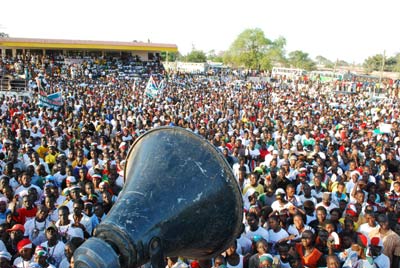
Borders and Barriers: Migration and Economic Exclusion
The search for a better life (sometimes couched in terms of freedom of religion) prompted migration from Europe to the new world in the seventeenth and eighteenth centuries. The ancestors of many North Americans, Australasians and white Africans or South Americans were hailed as pioneers, pilgrims and founding fathers despite the devastating consequences of their arrival on indigenous people. The settlers brought others too: Slaves from Africa or the East Indies, indentured labour from India and voluntary migrants came from the near and far East seeking greener pastures. Global mixing began centuries ago and the world has struggled with multi-culturalism and immigration since. The pursuit of ethnically pure societies is a mirage. The developed countries have multi-generational ethnic minorities from former colonies and everywhere else. Latin America and Africa are dotted with diaspora from the West and the East as well as mestizo groups. Migration continues unabated by borders and exploded on our television screens recently because of two catastrophic events: The sinking of a dingy in the Mediterranean which killed over 900 migrants and a second wave of xenophobic violence in South Africa which resulted in murder, looting and the expulsion of “foreigners” from their homes. Ironically, these events are the consequence of European state centred policy to cut back on rescue missions and anarchic but contagious violence in South Africa, where the state appears complicit by its impotence (until very recently when the army was deployed to protect foreigners).
Poor African migrants have two choices: Head north to Europe or south to South Africa, the largest economy on the continent. Both the governments of Europe and the poor citizens of South Africa cynically believe that danger will deter immigration. People will think twice about crossing the Mediterranean if the risks of drowning or deportation are great enough. Similarly, Mozambicans and Zimbabweans will leave South Africa and others will stop coming if the probability of being killed or dispossessed is greater. “They” need to get the message that “we” don’t want them, we have too many pressures coping with our own problems. Right wing parties in Europe and King Goodwill Zwelethini in South Africa have stoked the flames of intolerance and fear, turning public opinion against migrants so fiercely that the bounds of morality and humanity are being tested. Yet Italy and Greece are overwhelmed and the migrants who have fled South Africa will return when the situation calms down and more will still come. Danger does not deter when desperation is sufficient or when the danger of staying surpasses the danger of leaving. The people who risk everything to come to Europe or South Africa are driven by more than greener pastures; they feel that their survival depends on escape. Some are asylum seekers fleeing from conflict or ethnic cleansing but others are as desperate for work and a future.

The rise of populism in Southern Africa’s dominant party states
Over the past two decades the countries in southern Africa have generally had ‘dominant party systems’. Such party systems consist of one large ruling party which is dominant, in terms of seats in the national assembly or incumbent advantages, and a number of small opposition parties. The literature on dominant parties (Bogaards, 2004 and Greene, 2007) and competitive authoritarianism (Schedler, 2009 and Levitski and Way, 2010) provide useful insights for understanding the party politics of the region. The dominant party is usually a former liberation movement which fought to end colonialism or white minority rule. Nicholas van de Walle observes that opposition parties in the region lack the financial and organisational ability to compete with the incumbent advantages of ruling parties. As such, they remain small and fragmented. The dominant parties in southern Africa maintain their hold on power through a mix of co-option and coercion and are not unlike their counterparts in other competitive authoritarian states such as Mexico, Argentina and Russia. For example, mass political rallies are held to demonstrate the ruling party’s extensive support base. People are allegedly enticed to rallies with gifts in cash or kind. In addition state media are manipulated to give the ruling party more coverage and draw attention to its achievements and the government attempts to control the media through regulation or intimidation.










